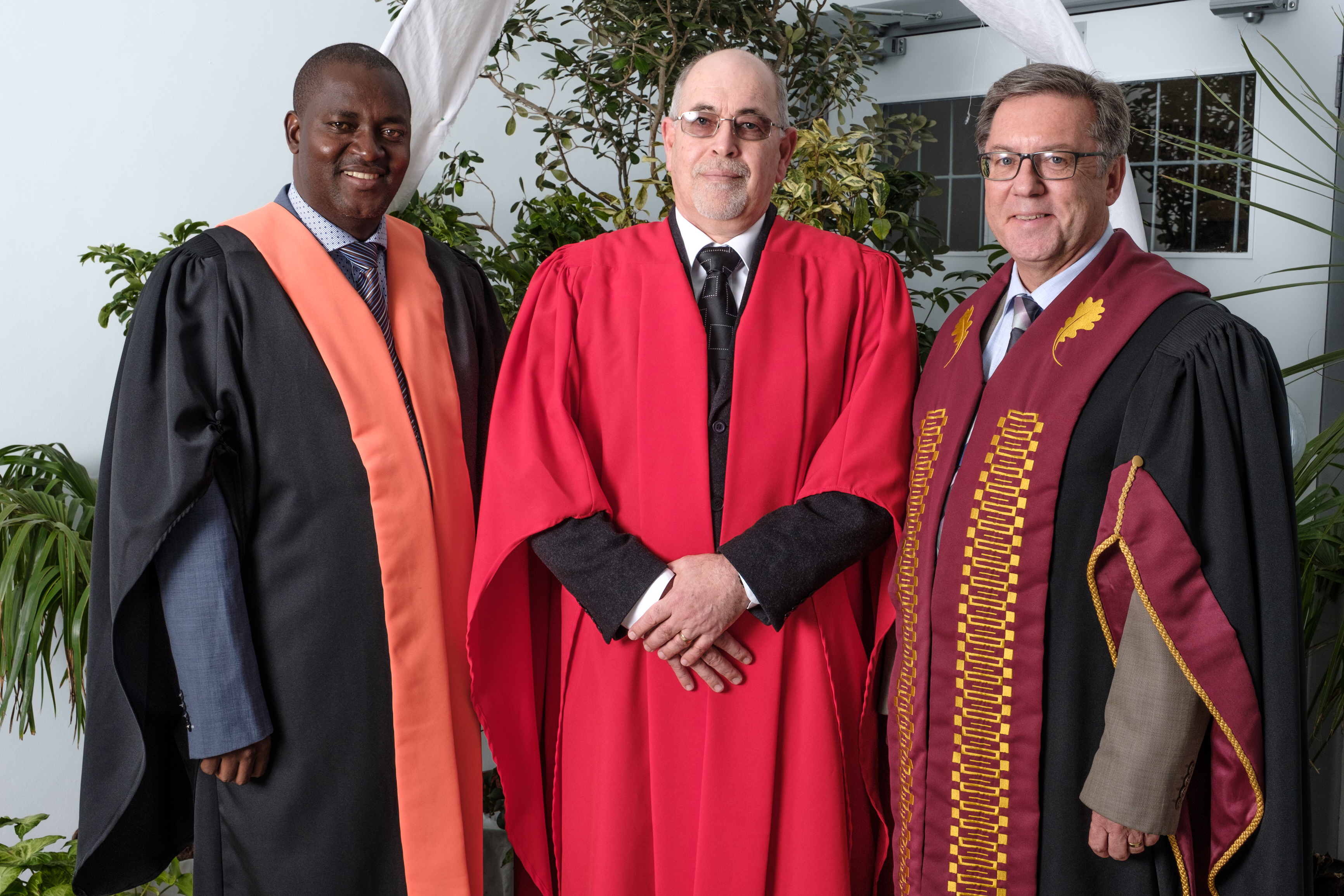Scholars produce knowledge that helps decision-makers to protect Africa's coastline.
This was one of the viewpoints of Prof Francois Vreÿ from the Security Institute for Governance and Leadership in Africa in the Faculty of Military Science at Stellenbosch University on Thursday (2 August 2018). He delivered his inaugural lecture on the topic Blue security: Academic contributions to Africa's maritime security.
Vreÿ said safe and secure oceans are fundamental for Africa's development and prosperity of societies, and scholars help to organise and give content to knowledge generation that assist decision-makers responsible for programmes and decisions to curb maritime insecurity.
“Scholars use scholarly publications, symposia, dedicated projects or immersed membership and accepted credibility and expertise to influence policy decisions on maritime security and relevant governance sectors."
“Scholars prepare knowledge products that help decision-makers to formulate and populate programmes directed at maritime security in flashpoints such as the Gulf of Aden, the Gulf of Guinea and also in the seas of Southeast Asia."
“In this regard scholarly work on for example maritime security capacity building helps governments and their maritime agencies to better manage their maritime environments over the longer run."
“Academic contributions have a role to play by way of exploration, description and explanation of complexities facing decision-makers at national, regional and international levels."
Vreÿ added that such academic contributions help with informed decisions about future maritime programmes, or explain actions within theoretical frameworks such as institutional learning for example, for later reference and decisions.
Another crucial academic contribution is to order and store information and ensure its accessibility by all, he said.
He highlighted maritime security publications stored in depositories like piracy-studies.org held by Cardiff University, and Seychelles University. Open access to work done by the British Academy funded Safe Seas Project is another example of academic contributions playing an important role.
“Scholars from various universities (including Stellenbosch University) worked in teams to address particular topics that contribute to practitioners' programmes and decisions on security in the oceans off Africa."
Vreÿ said much effort to research and better understand maritime security stems from threatening events off Africa and academia has a responsibility to extend knowledge products to assist decision-makers to secure and use Africa's oceans in a responsible and sustainable manner.
“Maritime crime is the dominant threat off Africa, manifesting as piracy, armed robbery, attacks on off-shore infrastructure, illegal fishing, pollution, smuggling of goods and people, and illegal migration through criminal syndicates."
“These are crimes that transcend recognised maritime boundaries and include transnational networks that call for regimes that promote and regulate cooperation to counter transgressions."
Vreÿ said mutual engagements, new meeting formats, a shared repertoire or agenda and joint enterprises identified in scholarly works serve as possible indicators of an emergent maritime-oriented security community on the African continent.
He argued that countries must work together to protect Africa's oceans and this co-operation must recognise and include the important role of research.
- Main photo: Credit: Pixabay.
- Photo 1: Profs Francois Vreÿ (middle) with Sam Tshehla, Dean of the Faculty of Military Science, and Eugene Cloete, Vice-Rector: Research, Innovation and Postgraduate Studies, at the inaugural lecture. Photographer: Stefan Els.
Prof Ian van der Waag of the Department of Military History also delivered his inaugural lecture on Thursday (2 August 2018). He spoke about Re-thinking South Africa's military past: The curious case of Brig Gen the Hon CF Beyers.

